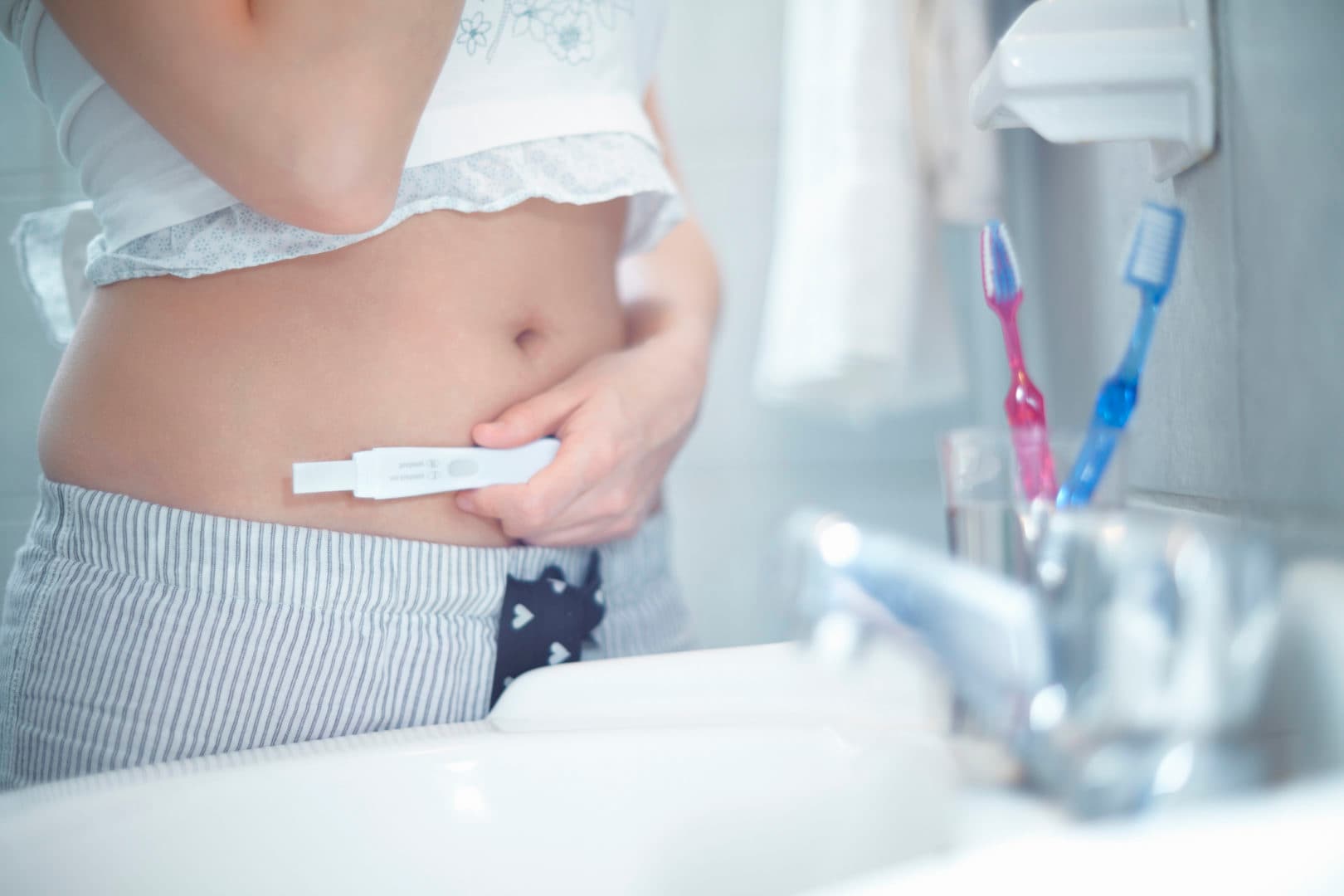Whether you’re actively trying to conceive or your period’s a little late, there’s a good chance you’re on the lookout for early signs of pregnancy. While a missed period is traditionally considered the telltale first sign of pregnancy, that’s only an initial indicator for some women — and it’s certainly not the only early symptom.
“One of the first signs of pregnancy is a missed menstrual period, although this is usually the case for women who have regular cycles,” says Dr. Jennifer Aquino, OB-GYN and clinical assistant professor in the Department of Obstetrics and Gynecology at NYU Langone Health in New York.
Aquino also points out that when it comes to early pregnancy signs, everyone’s different.
“The early signs of pregnancy vary among women,” she says. “Some will experience symptoms as early as five to six weeks, and other women may not experience any early symptoms at all.”
The most common early signs of pregnancy
Here are some of the common early pregnancy symptoms, according to Dr. Kecia Gaither, OB-GYN, maternal fetal specialist and director of Perinatal Services at NYC Health and Hospitals in New York:
-
Nausea and/or food aversions
-
Constipation
-
Fatigue
-
Breast tenderness
-
Vaginal spotting
-
Abdominal cramping
-
Moodiness
-
Headaches
If you’ve been pregnant in the past, it’s important to keep in mind that this pregnancy could be a whole new ballgame symptomatically.
“Not only can early pregnancy symptoms vary from woman to woman, they can vary from pregnancy to pregnancy in the same woman,” Gaither says.
Find out what you need to know about the most common early symptoms of pregnancy.
1. Nausea and/or food aversions
Early pregnancy can be difficult to pinpoint because some initial signs can mimic premenstrual syndrome (PMS) symptoms. That said, there are symptoms that tend to exclusively accompany early pregnancy, and they affect your gut.
“While there may be similarities in signs of early pregnancy versus PMS, generally food aversions, nausea and/or vomiting or constipation are not usual symptoms of PMS,” says Gaither.
One 2014 study found that nausea and vomiting in early pregnancy can affect 50% to 90% of women and are often the “first indicator to a woman that she’s pregnant.”
2. Constipation
Contrary to what some may think, diarrhea is not typically an early pregnancy sign. In fact, it’s usually the opposite.
“Due to the hormonal effect of slowing down intestinal function, constipation is often an early pregnancy sign,” says Gaither.
3. Fatigue
Early on in pregnancy, progesterone levels skyrocket, which can result in feeling extremely sleepy — more so than you would before your period starts.
“Before I found out I was pregnant, I thought I was coming down with something,” says Dina Leonard, of Rochester, New York. “I was so tired! I’m normally a little extra sleepy around the time of my period, but this was borderline debilitating exhaustion.”
4. Breast enlargement and/or tenderness
According to the National Institutes of Health, some women experience tender, swollen breasts as early as one to two weeks after conception.
“My boobs hurt immediately when I was pregnant,” says Lisa Roche, of Park Ridge, New Jersey. “They were swollen and very sore right away. I had a feeling I was pregnant because I don’t typically get breast soreness from PMS.”
5. Vaginal spotting
Spotting — not to be confused with bleeding — happens in about 15% to 25% of women during the first 12 weeks of pregnancy, according to the American College of Gynecology and Obstetrics. With spotting, you may only notice a small amount of blood that wouldn’t be enough to cover a panty liner.
A common cause of spotting is implantation bleeding, which happens when the fertilized egg attaches to the uterine lining. Implantation bleeding usually happens about 10 to 14 days after conception, which, for people with regular cycles, would be around the time your period is set to start.
6. Moodiness
Many women are more easily annoyed, frustrated, anxious and/or weepy during their periods, and this is also often an early sign of pregnancy.
According to the Mayo Clinic, mood swings are common during early pregnancy and “the flood of hormones in your body … can make you unusually emotional and weepy.”
If you feel unusually moody for longer than two weeks, consider speaking with a therapist or your healthcare provider. About 10 percent of women worldwide experience a mental health disorder while pregnant, depression being the most common.
7. Headaches
If you’re not normally prone to headaches but suddenly start experiencing them around the time your period is supposed to start, could you be pregnant? Possibly. Thanks to the surge in hormones and blood volume, which is needed for extra blood flow to the uterus, headaches can become more frequent in early pregnancy.
“I could probably count on one hand how many times I’ve had a headache in my life, so when I started getting them almost daily, I had a feeling I was pregnant,” says Joanna Davenport, of Los Angeles. “I’ve never been so happy to have a headache in my life!”
Other early pregnancy signs
Additional early pregnancy symptoms you may experience include:
-
Increased urination. Thanks to the increase in blood your body experiences, your kidneys will process extra fluid.
-
Nasal congestion. Again, more blood and hormones may cause the mucous membranes in your nose to swell, resulting in a stuffy nose.
-
Increased hunger. While food aversions are often an early sign of pregnancy, an increase in hunger may be indicative, as well. “With my second pregnancy, I found myself starving almost immediately,” says Roche. “I would eat large sandwiches for lunch that I typically only ate half.”




